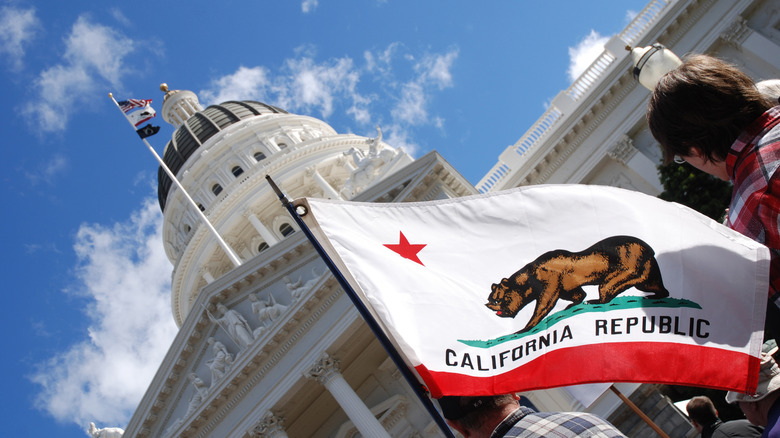Everything You Need To Know About California's Fast Food Wage Bill
In a 21-12 vote last week, the California State Senate passed a bill proposing the creation of a state council to decide conditions for fast food workers. If the measure is approved by Governor Gavin Newsom, California's hundreds of thousands of fast food workers would be represented by a group of 10 people, composed of two state officials and both workers' and employers' delegates. The council would negotiate wages, working conditions, and benefits for fast food workers employed by chains with 100 or more U.S. locations. That includes companies like McDonald's, which owns and operates some stores but allows franchisees to run the rest, reports The New York Times.
Service Employees International Union President Mary Kay Henry called the legislation "a huge step forward for workers in California and all across the country," in part because it could raise many employees' pay. The state's current minimum wage is $15.50 an hour, and the bill caps it at $22. Proponents say the bill would give fast food workers more autonomy and a role in influencing industry norms throughout the country. Some say it's a stepping stone to unionization. Though Newsom has not made a statement about his stance on the bill (and his finance department released a report highlighting its potential problems), Henry told Bloomberg that her organization is "quite confident" the governor will get it passed.
What opponents of the bill say
Many Republican lawmakers and restaurants industry groups have spoken out against the legislation. McDonald's USA president Joe Erlinger posted an open letter voicing his opposition to the bill, namely because he says it unfairly targets national chains. Small business owners who run just a couple of franchises will be affected by the bill, he points out, while those who own dozens of restaurants as part of a smaller chain will not be affected. "If it's essential to increase restaurant workers' wages and protect their welfare — and it is — shouldn't all restaurant workers benefit?" he wrote.
A Wall Street Journal op-ed called the bill "a recipe for higher restaurant prices and lower business and job growth," echoing a UC Riverside report estimating that about a third of increased labor costs would be passed onto the consumer. The publication said the bill, if passed, could lead to closures, terminations, and reduced hours for employees, as customers may not be able to afford higher menu prices. A Los Angeles Times editorial said that despite likely price increases, fast food would "remain a low-cost option" worth allowing "workers to keep the lights on at home, avoid being evicted or get off food stamps."

